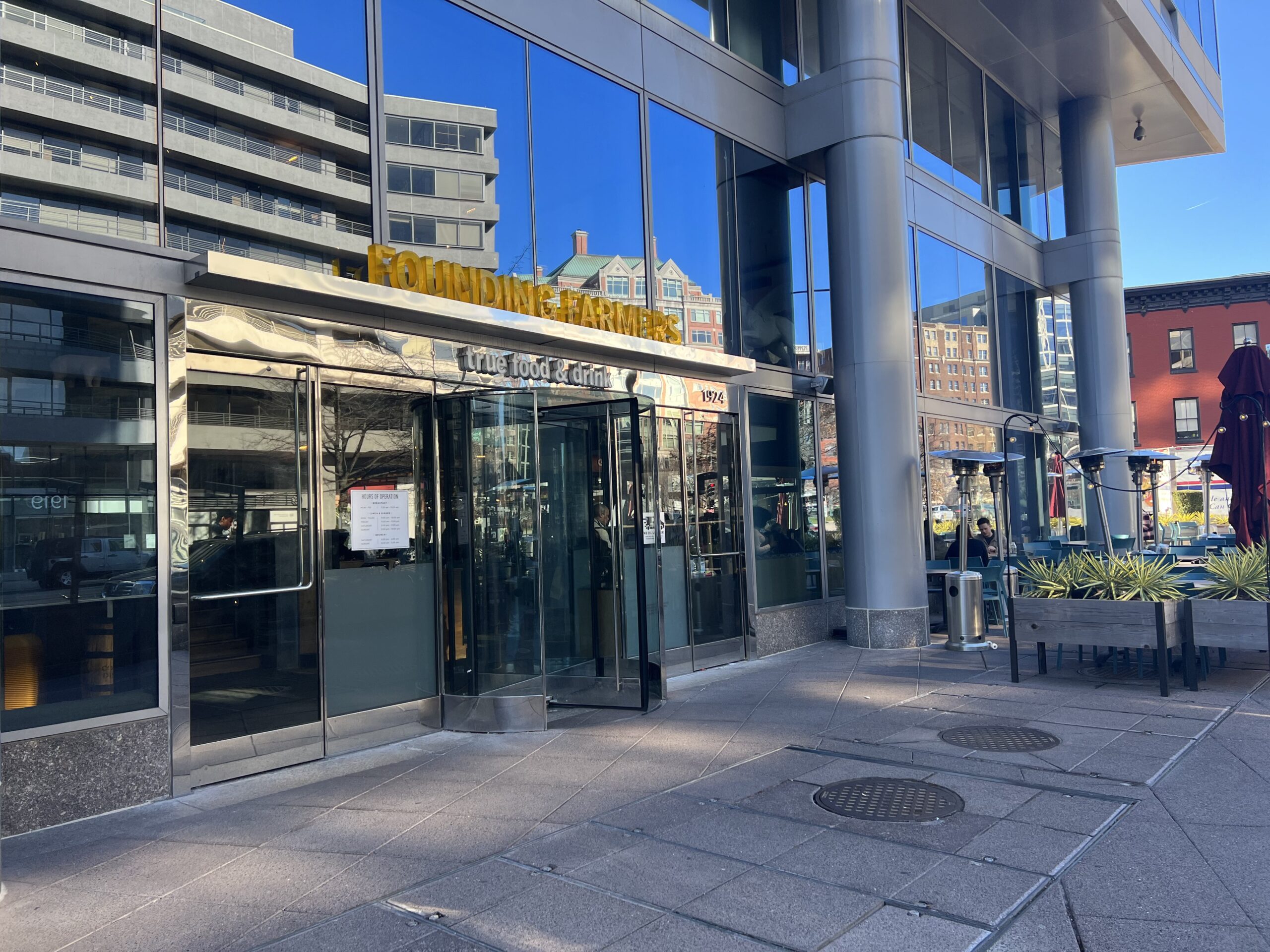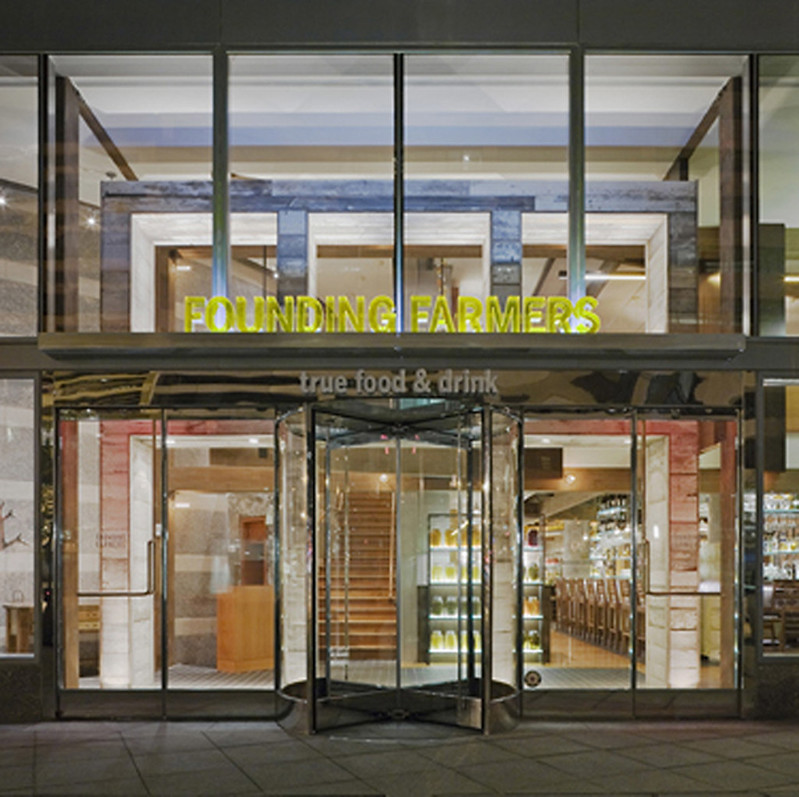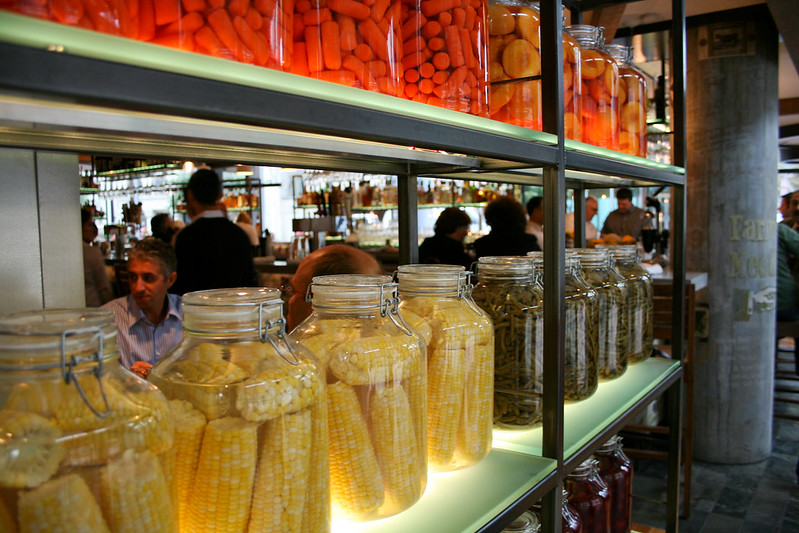
Oliver Grover

Oliver Grover
The average American’s diet isn’t very sustainable — in fact, a recent study from the National Center for Biotechnology Information found that the standard American diet has a daily carbon footprint ranging from 2.63 to 8.14 kilograms of carbon dioxide equivalent. Our habit of dining out at restaurants doesn’t help either, as food waste and carbon emissions are industry-wide hurdles to sustainable operations.
While diet-related greenhouse gasses in the United States fell 35% between 2003 and 2018, there is still more to be done. To try to gain a sense of what sustainable food production and consumption looks like, and how the everyday American can work more sustainable practices into their diet, we spoke with Chaia Tacos, Beefsteak, and Founding Farmers, three restaurants in Ward 2 of Washington, D.C. that pride themselves on the sustainability of their establishments.
As with any restaurant, location is important to sustainable dining. Ward 2 is centrally located in Washington, D.C. and encompasses the part of the city that includes the National Mall and George Washington University. While Ward 2 is hardly the only place these types of restaurants could flourish, it is still a prime spot for these establishments to draw in customers.
“I would just say that there may be more of an educated community on sustainability and the practices around that and why it’s important in Ward 2,” David Ferguson, the managing partner at Founding Farmers said during an interview. “It’s not that I think Ward 8 doesn’t want to be sustainable, I think it’s that they don’t have the resources and education they need in order to have that impact.”

The data supports Ferguson’s point that education is a big role in adopting sustainability practices. A report from the Yale Program on Climate Change Communication revealed that many Americans are under-informed on the impact of one’s diet on climate change. For instance, more than four in 10 Americans said that they either do not know if beef has an impact on climate change, or that they do not believe it has any impact at all.
With over 95% of Ward 2 residents having a high school diploma or higher, residents of Ward 2 may be more primed to be informed on their diets’ impact on climate change and more receptive to restaurants claiming to be sustainable. Additionally, Ward 2’s high concentration of white collar office workers and tourists help drive traffic to these establishments.
“Location is integral to any casual dining, as we typically capitalize on two rush periods around lunch and when people are coming home from work and just want to grab a quick bite,” Renard Wood, the general manager of Beefsteak, said in an interview.
By far the biggest trend between all three restaurants was their commitment to reducing food waste. Food waste is incredibly prevalent in America, accounting for an estimated 30-40% of the food supply according to the USDA. This means energy, land, and water are all wasted during both growing, processing, and disposing of food, adding up to an annual 170 million metric tons of carbon dioxide equivalent, equal to 42 coal fired power plants.
For some, reducing food waste can just mean using more of the food to cook with. Both Chaia Tacos and Beefsteak said that to reduce food waste, they use every part of their vegetables. Founding Farmers, however, turns to composting for their waste.
According to Ferguson, Founding Farmers composts “somewhere in the neighborhood of probably 1500 pounds to up to 3500 pounds a week.” The only thing that can not be composted, he said, are their doughy materials and bone.

“Here, any leftover food goes into a specific leftover trash can and then it gets composted,” Ferguson said. “So whatever we can save there isn’t going to a landfill.”
Depending on which location, Founding Farmers’ food waste is either composted directly on site or is transported to an off-site location, adding some additional emissions through the transport.
In our conversations with these restaurants, a common thread was that locally sourcing sustainable ingredients is more costly for the businesses.
“Now things have changed, and we try to push the risk and the financial burden it has on us to remain true to who we are,” Juan Dromgoole, Director of Operations at Chaia Tacos said in an interview. “We really do try to put an effort into sourcing with the right people and working with the right vendors.”
Ferguson echoed similar sentiments. According to him, sourcing and eating sustainably is pretty much always going to be more expensive than not. However, there are ways for these restaurants to drive down costs that simply are not an option for the everyday American, such as buying ingredients in bulk.
“It is quite the oxymoron that it costs you more to do it better or eat healthier,” Ferguson said. “Pricing of course matters, but we’re never going to save money and give up the sustainability part of it.”
This type of local sourcing can also be quite taxing on the farmers. Dromgoole told us that some ingredients are harder to get locally than others. Potatoes, for instance, are a struggle for Chaia to source sustainably, as the amount required for their restaurant is too much for smaller farmers to consistently provide.
While sustainable eating is closely tied to sustainable food production, these restaurants’ practices go far beyond their sourcing. By continuing the practice of sustainability in their daily operations, they are able to cut their emissions far beyond just their customer’s diets.
Beefsteak, for example, use sugar cane fiber and corn plastics for all of their to-go packaging. They also use a type of oven powered mostly by water, drastically cutting down their gas uses compared to other dining establishments.
Founding Farmers also takes significant measures to reduce their emissions. And in contrast to their sustainable sourcing, Ferguson says that these steps actually save them money in the long run. Their establishment features energy meters in the restaurant to give them an idea of energy usage and its environmental impact, allowing them to constantly make changes for the most efficient and sustainable energy usage.
“Every month we’re reviewing those things, and if there’s a better way, we’ll do it,” Ferguson said. “Everything matters. How we use it, what we’re using it for.”
These measures, Ferguson says, actually wind up saving organizations money in the long term. Unlike sustainable sourcing which is often more expensive for restaurants, by limiting water or energy usage to sustainable standards, restaurants avoid using an excess, saving them money on monthly bills.